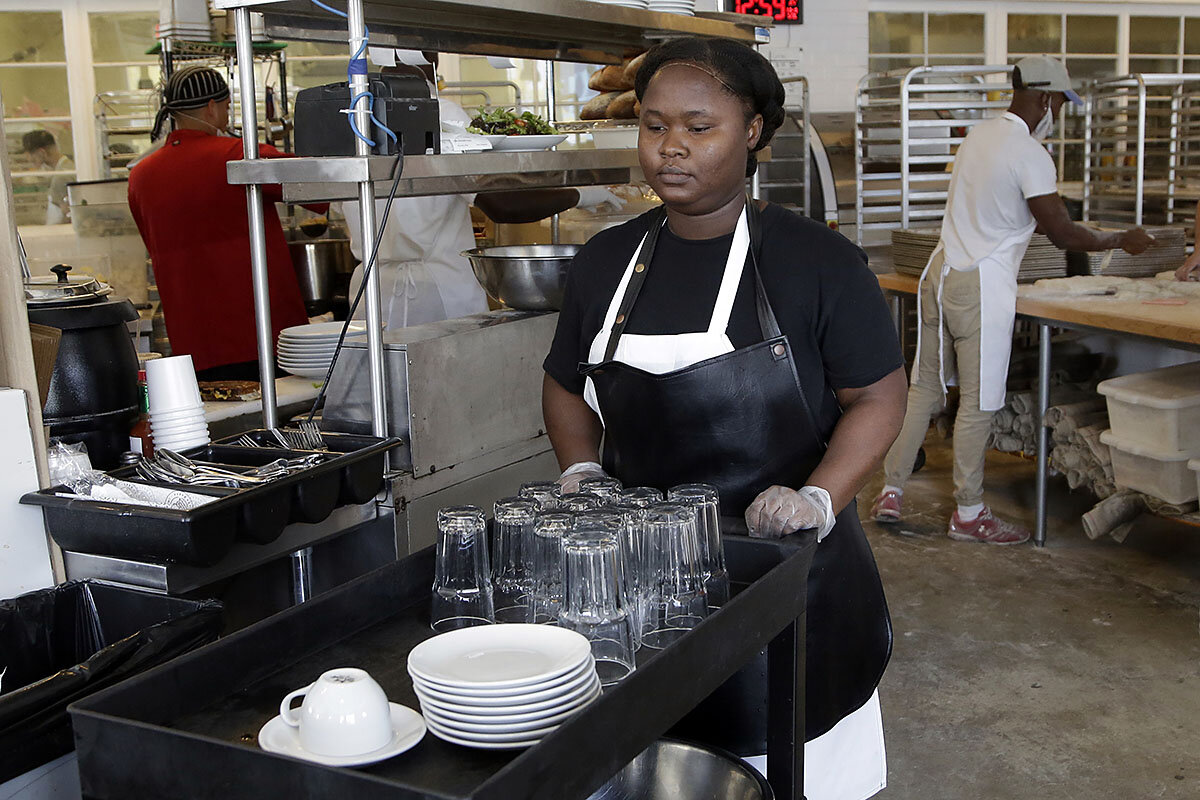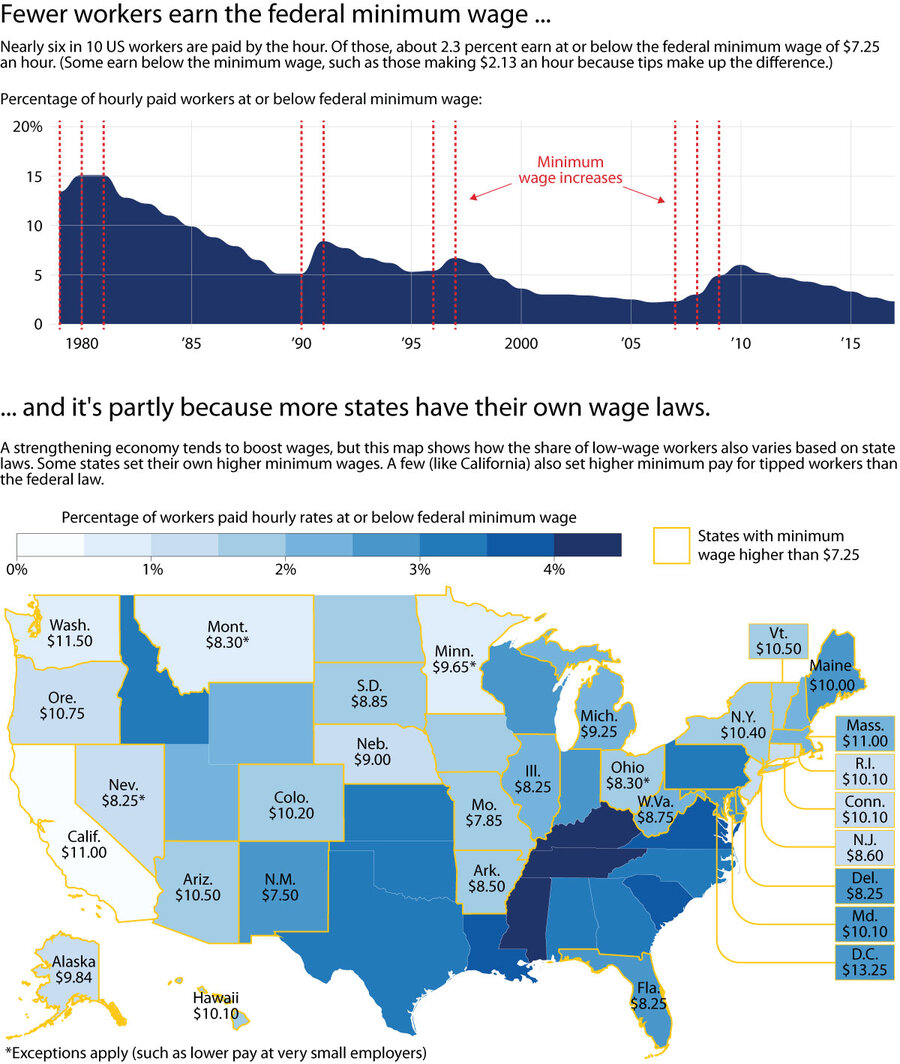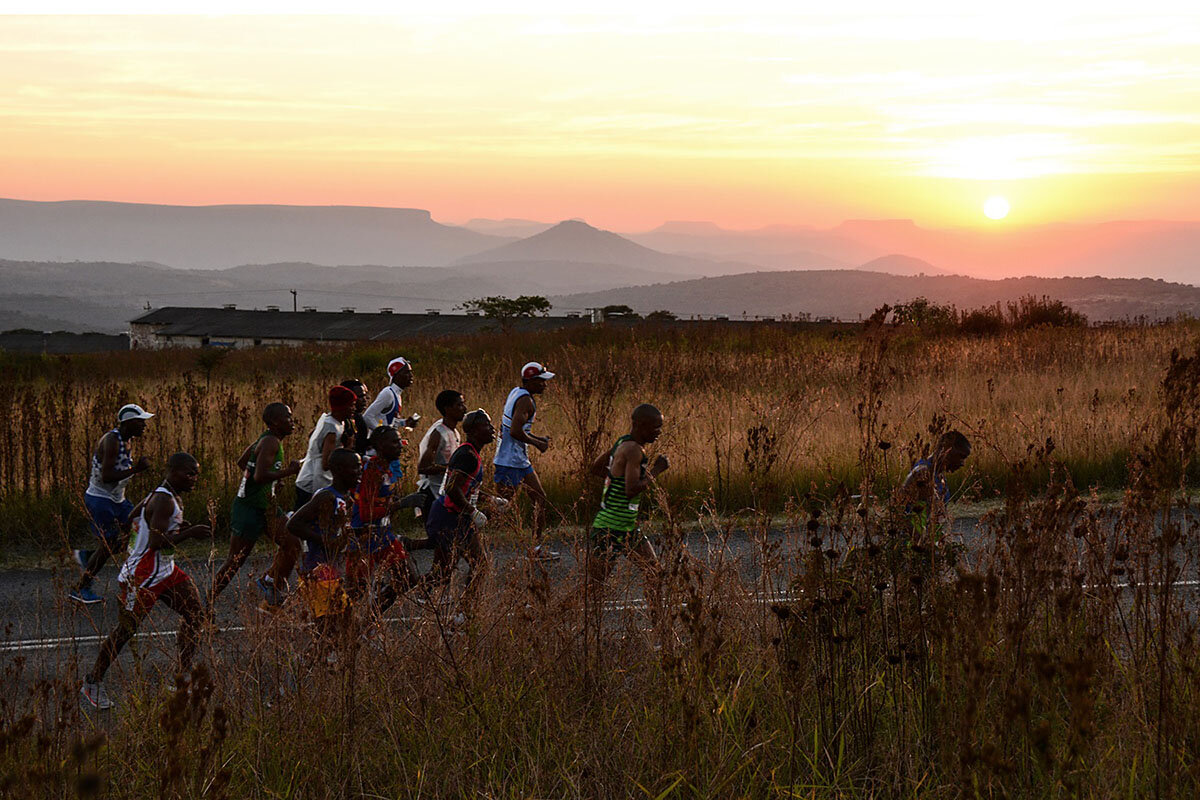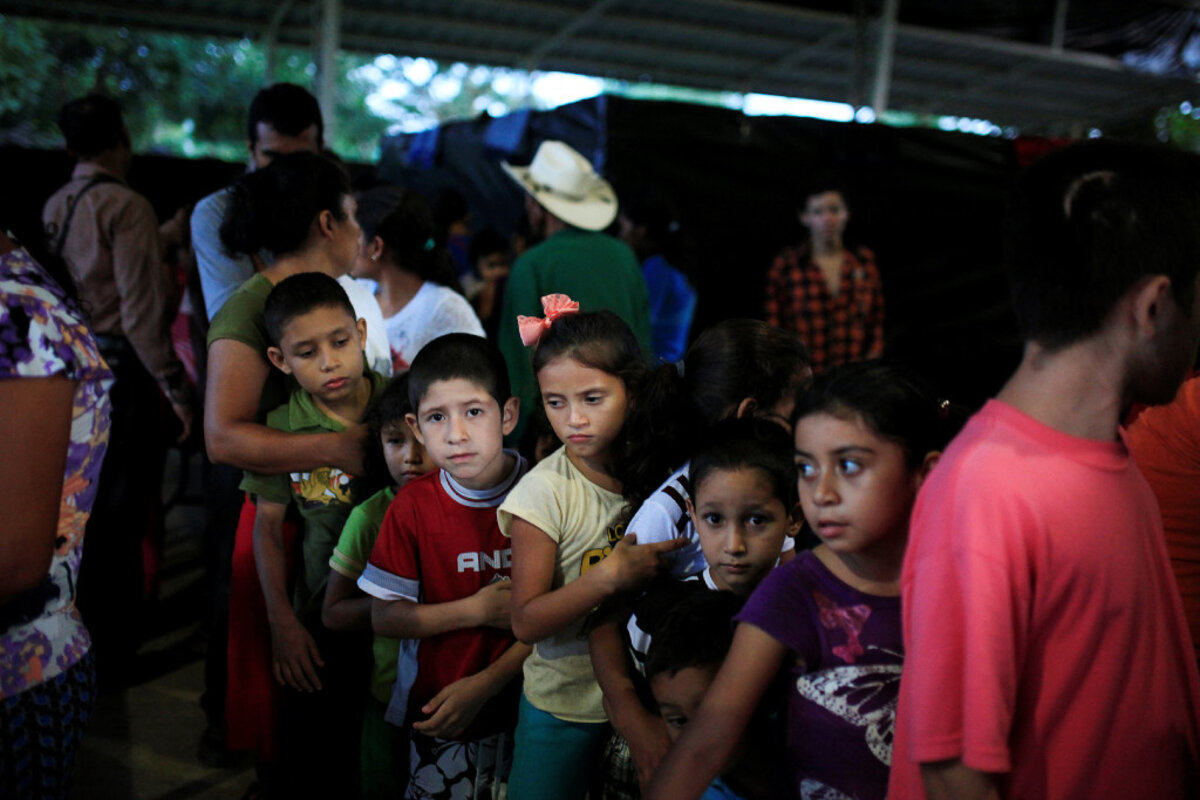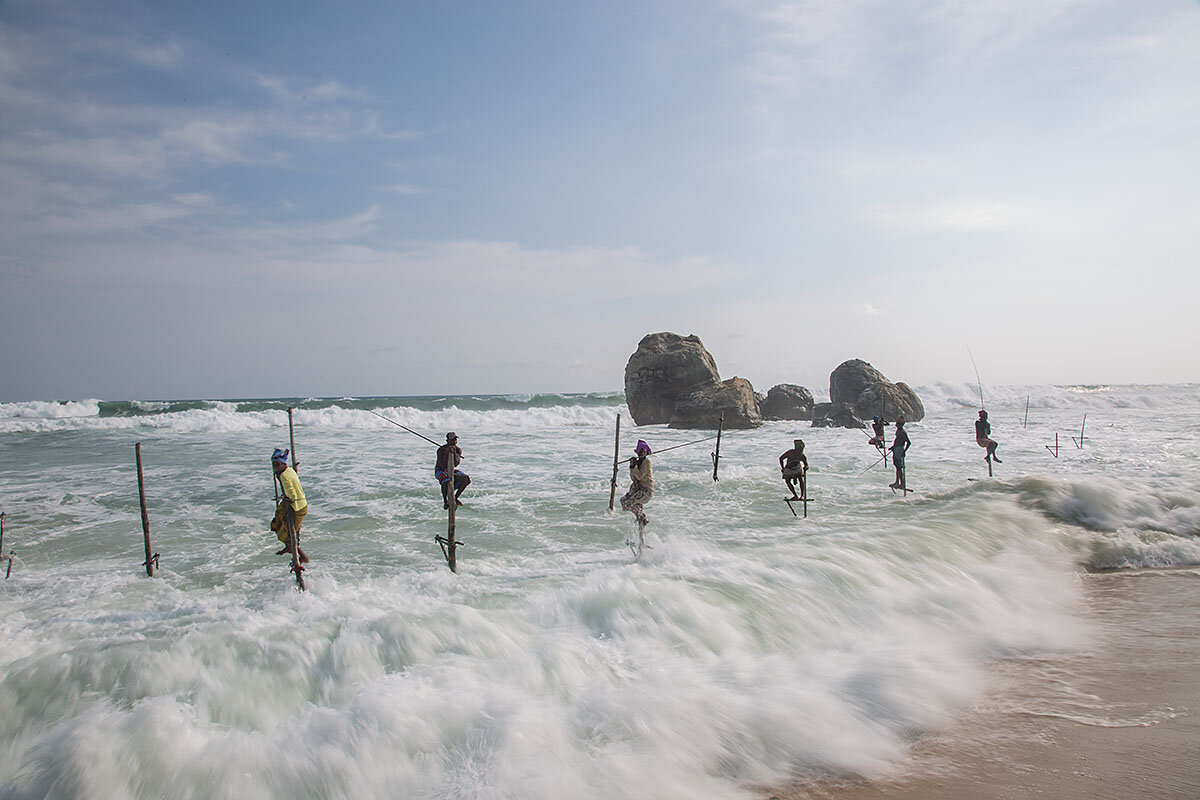The US labor market continues to fly high, with a report of 213,000 new jobs in June. We wondered: To what degree is that making the minimum-wage job obsolete?
Monitor Daily Podcast
- Follow us:
- Apple Podcasts
- Spotify
- RSS Feed
- Download
 Clayton Collins
Clayton Collins
Today news-watchers’ heads pivot to Asia: a “trade war” kickoff against China, a delegation sent to check in on Kim Jong-un’s action (or inaction) on nukes.
Next week, the US president heads to Brussels (for NATO), and to London. More divisiveness is in the forecast, as are some high-profile protests.
And US immigration policy still roils. On July 4, a Congolese immigrant-activist scrambled to the feet of Lady Liberty to protest the tactics of Immigration and Customs Enforcement, a move that seemed heavy with poignancy but that mostly played out in media reports as a dangerous annoyance.
People keep referencing the summer of 1968. It’s worth a look back. Fifty years ago today – eight days after he signed the Treaty on the Non-Proliferation of Nuclear Weapons – President Lyndon B. Johnson went to El Salvador for a summit with heads of state, including those from the Northern Triangle countries that are now the major source of migration. He plumped the legacy of President Franklin Roosevelt’s “good neighbor” doctrine in a speech in Nicaragua. (Calls still go out today for more equitable, moral relations with that region.)
There, as at home, Johnson was met with protests against the war in Vietnam.
The clenched fists of that summer make statue-climbing and anti-Trump balloons look tame by comparison.
Is there a right course of action for people interested in universal well-being?
Today much of it revolves around one particularly potent tool available to all citizens: getting involved in elections – and not just through vote-casting, though immigration is likely to be a “base motivator” for both parties in the midterms.
Protest today often takes the form of deliberate action to own a share of control. First-generation Americans seek office in greater numbers. Teachers are running to protect their interests. And women are better represented in state legislatures. There’s power in participation.
Now to our five stories for your Friday.




